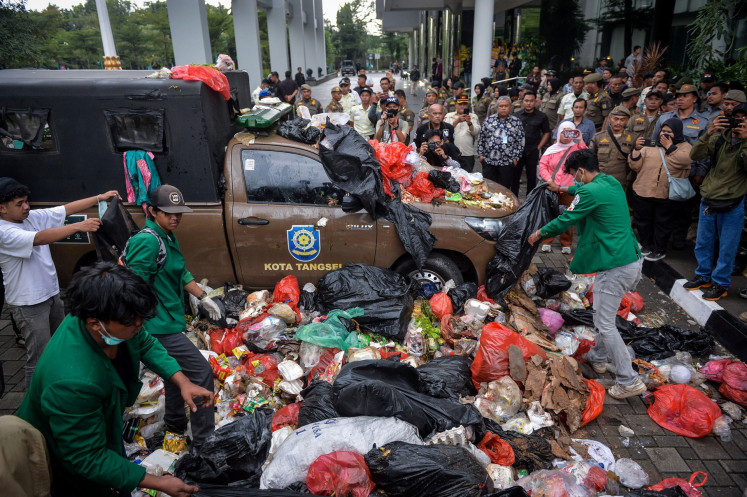Popular Reads
Top Results
Can't find what you're looking for?
View all search resultsPopular Reads
Top Results
Can't find what you're looking for?
View all search resultsRediscovering Indonesia’s rhythm: A hope for 2045
As Indonesia speeds along its course of pseuo-modernity toward 2045, perhaps it needs to take a "time out" to look back at its epistemic history without the colonial lens and reclaim the rhythm and ethic of timing, restraint and relational appropriateness that once underlined its identity.
Change text size
Gift Premium Articles
to Anyone
 Slow motion: Artists perform the “Dewi Sekartaji Mask” dance on April 7, 2025 during the Mangkunegaran Performing Arts Festival at the Mangkunegaran Palace in Surakarta, Central Java. Traditional Javanese dance features controlled, deliberate and refined movements that are often slow and meditative. (Antara/Andika Betha)
Slow motion: Artists perform the “Dewi Sekartaji Mask” dance on April 7, 2025 during the Mangkunegaran Performing Arts Festival at the Mangkunegaran Palace in Surakarta, Central Java. Traditional Javanese dance features controlled, deliberate and refined movements that are often slow and meditative. (Antara/Andika Betha)
T
o understand Indonesian thought using precolonial sources is a tricky undertaking, as there is no clean precolonial archive to draw from. The “Nusantara wisdom” we have today has largely passed through colonial filtration.
Yet this absence of unmediated sources does not imply a lack of knowledge, only a loss of form. It calls for a different lens: Not toward what was documented, but toward what colonial systems may have filtered out.
Where modernity sought system, text and codification, the Nusantara world conveyed meaning through rhythm, gesture, timing and presence. Wisdom was not declared; it was lived. Not a doctrine but an orientation.
This contrast matters. In today’s epistemic economy, knowledge is expected to declare itself: citable, scalable and structured.
But in the precolonial archipelago, knowledge moved relationally, not abstractly; absorbed gradually, not transmitted instantly. Memory lived in ritual, tone, pause and the refusal to speak prematurely. Authority was not broadcast but sensed. It waited until the moment carried weight.
Modern institutions do not know what to do with that kind of rhythm. Bureaucracy and policy reward speed, clarity and reproducibility. They equate trust with visibility. As a result, the older code of favoring silence, ambiguity and restraint registers as dysfunction.
This is the crux of the misunderstanding. The call to “recover” precolonial wisdom often assumes there is something intact, extractable and transferable. But that past was not built for replication. It was lived, relational and timed.


















